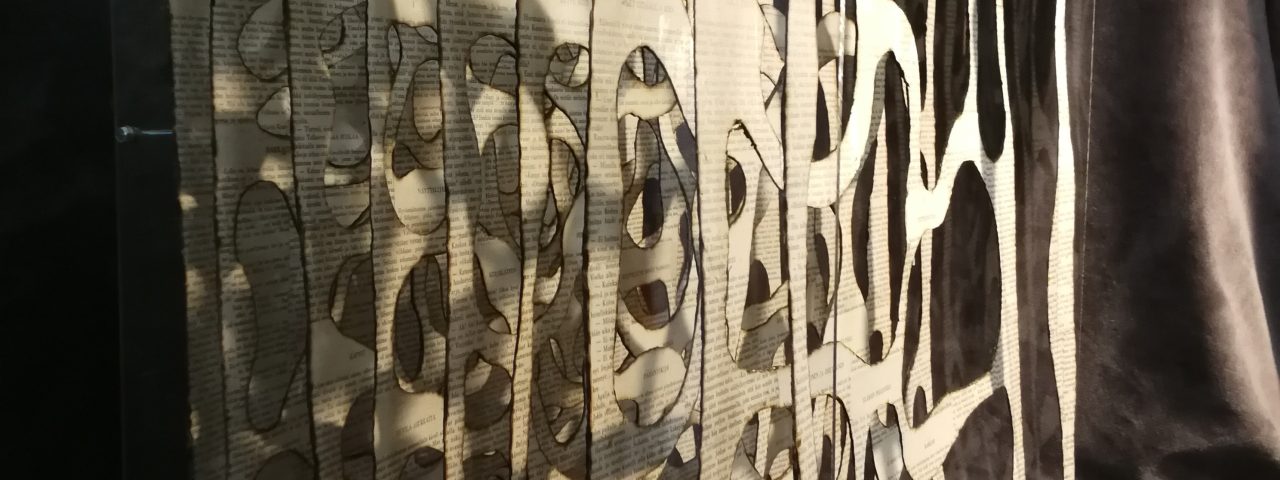Research Project
CONTENT:
Description of the project
Subprojects
Collaborations
Description of the project
The research project The Novel’s Knowledge (2022–2024) focuses on the ever-changing functions and roles of fictional novels along with their authors, in the era of global medialization and commercialization of the 2000s. We propose that the functional role of the author in the contemporary media-driven world is evolving, while the social relevance of an author as an intellectual has remained relatively unaltered. The project is interested in how authors of fictional novels take advantage of other forms of media and how the Finnish contemporary novel relates to different modes of knowing and ways of presenting.
In the project we discuss the intellectual authorial projects which combine art with researched knowledge – whether the intellectual project is concerned with rewriting history, cultural minorities, animal rights questions, or technological innovations. Scientific facts, audiovisual culture and social media have substantial influences on discourse about literature and literary forms as well as methods and practices of reading.
Additionally, we are offering tools and capabilities for understanding the evolving functions and modes of expression of the contemporary novel, the stakeholders being the different operators of the literary culture, literary field, and cultural politics. Thus, the societal objective of this project is to inspire discussion between the field of literary studies, authors, reading public, and the literary institution.
Among other things, the project produces scientific data in the form of interviews conducted on certain Finnish novelists. After the project’s closure the interviews will be reposited at the literary archives of The Finnish Literature Society (SKS), and published openly for scholars to utilize. The research material comprises contemporary Finnish novels and their interlinked art projects, other related media, and interviews of contemporary Finnish authors. The research methodologies include narrative theory and sociology of literature.
The project’s working language is Finnish, and the latest updates can be found from the Finnish side of this website.
Subprojects
Markku Lehtimäki works as PI of the research project and focuses in his own research especially on Sofi Oksanen as a twenty-first-century “star author,” who acts not only as a novelist but also in media and society in a larger sense. Lehtimäki’s theoretical and methodological approach to the contemporary Finnish novel and novelists is related to the rhetorical theory of narrative, with its many-layered understanding of authorship as a textual construction as well as a public myth.
Elina Arminen explores the role of contemporary Finnish authors – as intellectuals and social influencers – in the context of current literary life and changing media culture. She analyses what kind of strategies and means of influence contemporary writes utilize, and what kind of positions and situations are the authors invited in via their occupational publicity and the contemporary practices of literary life. Special attention is paid to the authors’ self-understanding of their public roles, and the multimodal projects they are involved in. Her research material consists of contemporary Finnish novels, media texts, and interviews with Finnish authors.
Ralf Kauranen focuses on the graphic novel in the Finnish literary field and publicity. Graphic novels are often, perhaps, somewhat paradoxically, documentary, and they combine different forms of knowledge in their narratives. Specifically, he studies Finnish graphic novels on migration, examining the combinations of different forms of knowledge that they build on and represent, for example, both fiction and fact, both verbal and visual. He asks how comics artists partake in the public debate concerning migration. In another line of study, Kauranen takes an interest in graphic medicine as a form of knowledge in Finnish society.
Lotta Luhtala’s subproject asks, what means and sites for activism fictional novels, and the public personas of their authors, make possible. She focuses on political and sociocultural subjects, such as veganism, animal rights activism, eco-ethical questions and gendered power relations. She analyzes how novels – which are seen as influential means of communication – cater for these complicated topics, and what kind of human and non-human knowledge and knowing novels can produce.
Hanna-Leena Määttä‘s subproject examines writers from multicultural and minority backgrounds as social actors who influence literary life and conceptions of Finnish literature. She asks what kind of role a minority writer has in shaping literary conceptions and how writers have influenced the way of thinking about Finnish literature.
Laura Piippo‘s subproject analyzes the relationship between the often experimental encyclopedic contemporary Finnish novels and digital environments, where the information overload and algorithmic logic often overpower human perception. On the one hand, the analysis focuses on how the novels produce and structure information by adopting online material. On the other, it examines how these novels are then mutually assimilated into the digital environments in, for instance, their reception and different adaptations.
Collaborations
The Finnish Literature Society (SKS)
Artwork used on the website: Elizabeth San Miguel.
